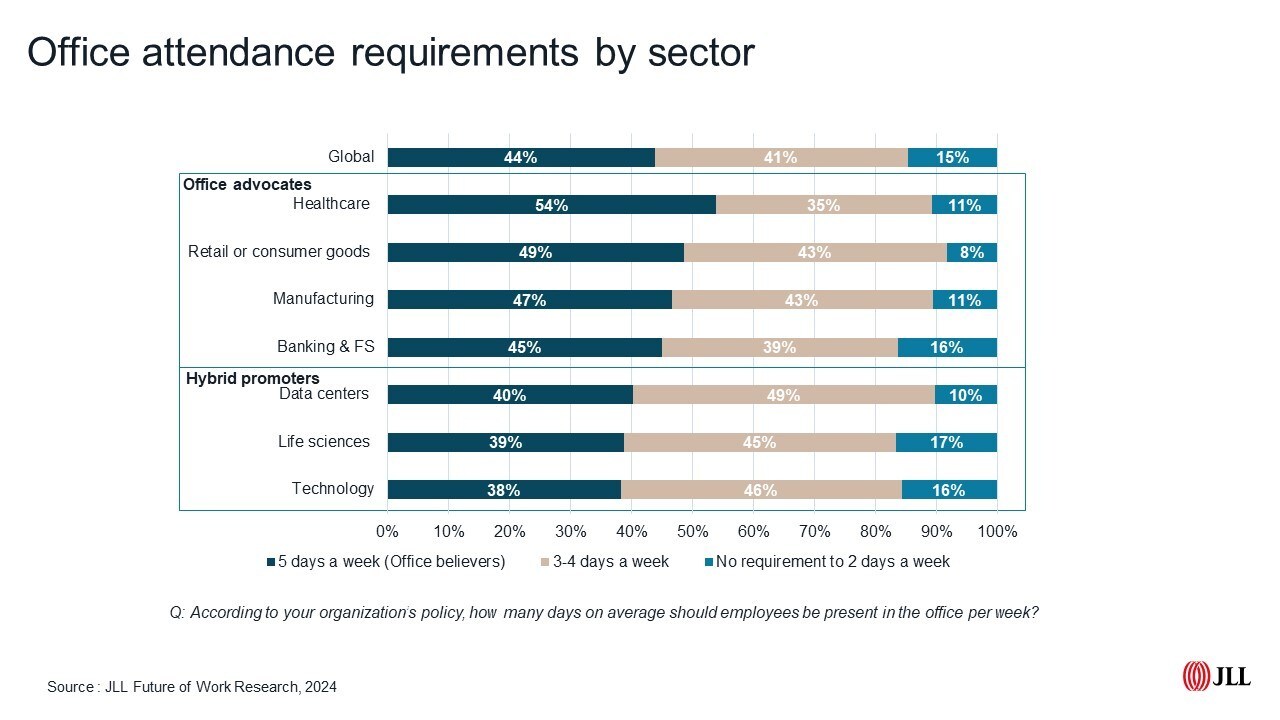
'Organisations do not want disparity in work practice'

More employers across the world have mandated their workforce to return onsite five days a week, according to the latest survey from JLL.
Its biennial Future of Work survey revealed that 44% of employers across the world are now expecting staff to be fully on-site five days a week.
This is much higher than the 34% of employers, or "office advocates," who had similar expectations back in 2022.
Hybrid adopters, or those who allow employees to work remotely several days a week, have also declined to 56% from the 77% two years ago.
"There is now a broadly even split between those organisations which favour some form of hybrid workstyles and those expecting to see employees back in the office full time," the report read.
Among hybrid adopters, 41% want their workforce to be in the office three or four days a week, while nine per cent expect staff to be onsite one or two days a week.
Only five per cent of hybrid adopters have no formal policy or minimum requirement on the number of days to be in the office, according to the report.

These findings offer a bigger picture on the number of employers asking employees to fully return onsite after years of allowing remote work during the pandemic.
According to the report, hybrid adopters are more likely to be organisations with over 10,000 employees and are based in the Europe, Middle East, and Africa region.
"Hybrid also appeals to certain types of organisations, such as those in e-commerce, energy & renewables, technology, and life sciences. Notably, these are all new economy, knowledge-based industries where staff attraction and retention are crucial to success in high-growth sectors," the report read.
Office advocates, or those who have implemented full office-return policies, are more likely to be organisations with 1,000 to 9,999 employees, according to the report.
They also appear to be organisations based in the Asia-Pacific region or the Americas, it added, noting that they are from industries which are either customer-facing or have a large proportion of non-office staff working onsite.
"Their preference suggests these organisations do not want disparity in work practices – management at home and workers on the shop floor – and are using office-based working to build solidarity across the whole workforce," the report read.
Cynthia Kantor, CEO, Project & Development Services, JLL, said their findings demonstrate the varying futures for many organisations across the world.
"It keeps shifting and requires building evolutionary office programmes and spaces, able to adapt to continuous changes in the workstyles," Kantor said in a statement. "Globally, as CRE budgets and footprints receive new investment, the corporate real estate function must effectively partner with the C-suite to demonstrate the desired value."